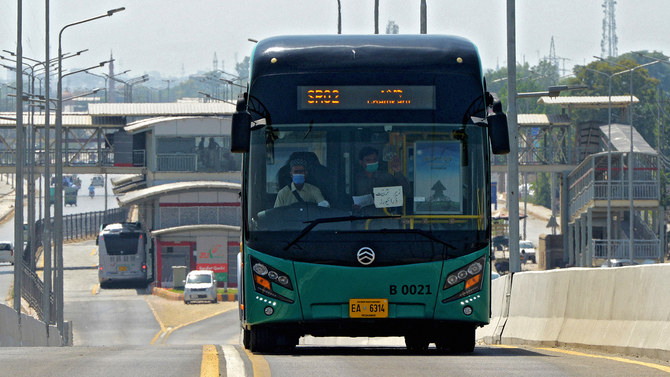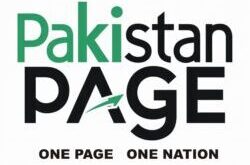
BRT faces Rs.3.2 billion annual losses amid struggles to serve passengers with disabilities, women
PESHAWAR : The ongoing shortage of buses within Peshawar’s Bus Rapid Transit (BRT) system exacerbated the difficulties faced by passengers, particularly those with disabilities and women, as they navigate the city’s public transport network that are facing about Rs 3.2 annual losses.
The scrapping of private transport options and long delayed in completion of BRT’s commercial malls at Dabgari and Hayatabad has further intensified these massive challenges, leading to a noticeable strain on the BRT system’s capacity.
Among those passengers struggling is Khurshid Khan, a 43-year-old government employee who mostly relied on the BRT for his daily commute from Chamkani to Hayatabad — a journey spanning approximately 27 kilometers.
As a person with a disability, Khurshid Khan has encountered significant discomfort and difficulty during his travel due to a lack of adequate seating facilities. The reserved seats for individuals with disabilities are often occupied by other passengers, forcing him to stand for nearly one and a half hours during his commute.
“I experience severe pain in my back and legs while standing for such a long duration,” Khan said. “It is disheartening to see the seats designated for people like me being taken by others. The overcrowding on the BRT buses, especially during peak hours, has become a daily struggle, often leading to uncomfortable confrontations between general passengers and those with disabilities.”
The situation has been compounded by the BRT’s financial woes, including substantial losses due to subsidies and delays in the development of commercial plazas, which had further strained the system’s resources.
The limited number of buses and shortage of busses have led to frequent overcrowding, with many passengers left standing and struggling to find a seat, exacerbating the difficulties for those who are already vulnerable including girl students.
In the mornings and evenings, when the passenger rush is at its peak, the issue becomes even more pronounced. The limited availability of dedicated seating for persons with disabilities, coupled with the overcrowded conditions, has resulted in a regular exchange of heated words between passengers and individuals with disabilities and students of professional colleges besides government employees immensely.
Sadaf Kamal, Spokeswoman of Trans Peshawar said the occupation of reserved seats of women and special persons by general passengers was a big challenge, adding special bars were erected in BRT buses to address this issue. She claimed that about 350,000 passengers were travelling daily in BRT and providing seats to all commuters was difficult. Keeping in view of passengers’ load, she said the buses were increased to 244 in main corridor and feeder routes.
To a question about huge financial losses suffering by BRT, Sadaf said that BRT was facing about Rs3.2 billion annual losses mainly due to granting of subsidy to passengers. She said that an average Rs 23 revenue was being received per passenger against Rs80 expenditure between Chamkani-Hayatabad route, adding Trans Peshawar pays about Rs 700 million as sales tax on services besides upto Rs400 million to Federal Board of Revenue (FBR) and approximately Rs 400 million electricity charges per year.
Trans Peshawar also generate Rs 20 million revenue from advertisement after signing an agreement with a popular advertisement agency, she said, adding about Rs1.5 billion are being returned back to the government kitty under these heads.
Sadaf claimed at national and international level, almost all such mass transit projects went into losses due to massive subsidies granted by the respective governments to facilitate poor passengers and general public at large.
Ikhtair Wali Khan, PML-N KP spokesperson said that Rs 3.2 billion annual losses by BRT was a major burden on the Khyber Pakhtunkhwa government’s exchequer that was already facing huge foreign loans burdens.
“The poor feasibility of BRT’s corridor have plunged Peshawar into traffic jams especially at morning and evening, creating great problems for thousands of government employees, students, general public, labourers and passengers coming to provincial capital from different districts for jobs on daily basis.”
The PMLN leader claimed that the long delay and slow paced work at BRT’s commercial malls at Chamkani, Dabgari Gardens and Hayatabad Peshawar were causing huge financial losses to the provincial exchequer. With completion of these large malls sprawling on several acres with facilities of spaces for offices, business and car parking could generate about Rs700 million as revenue.
Besides vehicular and noise pollution, he said that black smoke being emitted by dozens of bricks kiln and marble factories at Peshawar have further aggrieved problems for Peshawarties exposed to various environmental and pollution hazards.
Ikhtair Wali said that one of the reasons of the BRT losses was unavailability of fueling and charging facilities of its buses especially at Hayatabad Mall. “These buses have to return at late night or early morning to main Chamkani Mall for fuelling and charging of batteries, which create negative effects on its revenue.”
Sadaf said that 503 smoke emitting wagons and busses were scrapped after launching of BRT at Peshawar and compensation were paid to the owners besides jobs to its drivers and conductors.
Due to BRT, she said the number of women passengers were increased from two percent to 30 percents besides positive social, educational and economic effects in lives of Peshawarties.
There are also plans of launching of similar projects at Abbotabad, Swat and DI Khan for which huge investment would be required. She said its services were extended to Nasirbagh Road to link Regi Model Town with BRT main corridor and plan to extend it to Pabbi tehsil of Nowshera are under active consideration.
BRT’s services have been recognized both at national and international level and received five international awards including Institute for transport development and policy as gold standard award, sustainable transport award in 2022-24, prize for cities and best smart ticketing program, she said.
The current state of the BRT highlighted the pressing need for addressing the issue of huge financial losses, increasing capacity and better management of the transport system to address the needs of all commuters.
